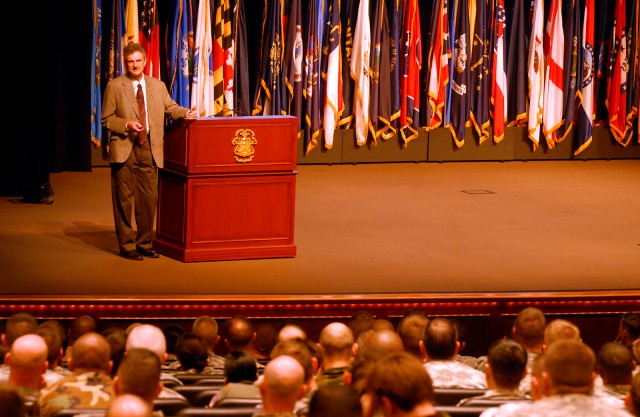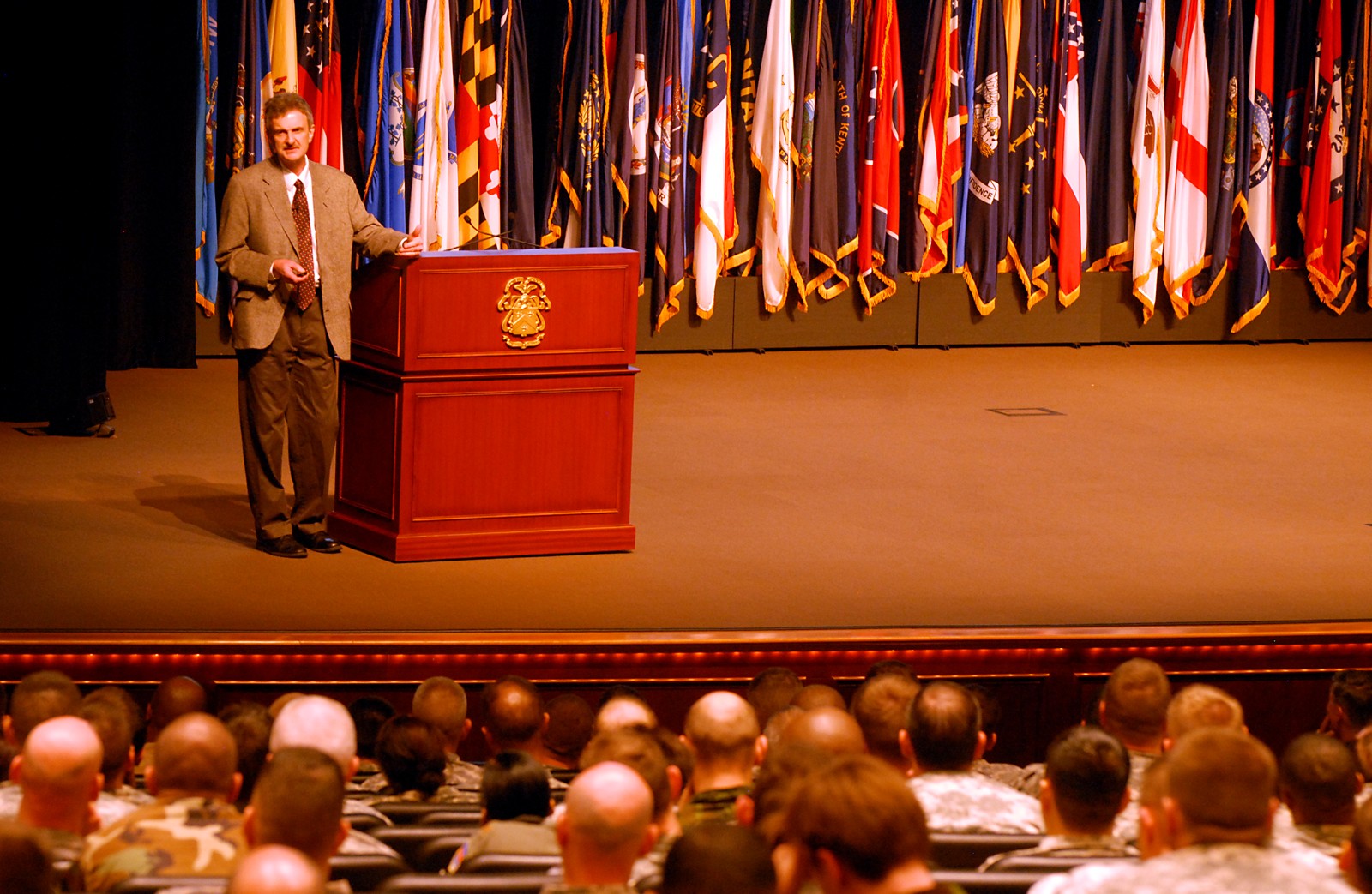
FORT LEAENWORTH, Kan. (April 8, 2010) - A psychology professor, researcher and author spoke to Intermediate Level Education students about post-traumatic growth April 6 in the Lewis and Clark Center's Eisenhower Auditorium.
Dr. Robert Tedeschi, professor of psychology at the University of North Carolina Charlotte, said trauma itself isn't necessarily a good thing for people, but rather it's the struggle to deal with trauma and the resulting growth that is beneficial.
"Post-traumatic growth is a process people go through in the aftermath of experiencing trauma," he said. "It's also an outcome of trauma - it's a series of changes people experience themselves that they label as valuable, or beneficial, maybe not right away, but in the long run."
Tedeschi said trauma is defined as a threat to psychological integrity, especially cognition. He said trauma is "a shattering of the assumptive world," or the way in which one perceives the world around him or her, and acts as a catalyst for PTG.
"It appears that perhaps the more suffering and difficulty that people go through, who may otherwise be able to cope with it successfully, the more they're going to report post-traumatic growth," Tedeschi said.
He said Soldiers in combat have all experienced some level of trauma as a result of fear, losses, carnage, killing, shame, guilt, helplessness and other stressors.
Tedeschi said a combat stressor is anything that challenges a person's beliefs, and personal and emotional reactions affecting how one understands events and circumstances around them.
"All these things represent challenges to how people believe, what they think, what they feel, what they have known about themselves," Tedeschi said. "Experience with combat and other trauma is not always negative, or totally negative."
He cited surveys of Vietnam War veterans showing a greater satisfaction with life among veterans who saw the most combat, and prisoners of war who said the experience made them a better person.
Tedeschi said PTG is distinct from Comprehensive Soldier Fitness and resiliency taught to Soldiers today, but has some things in common.
"Post-traumatic growth is a new level of functioning, a new perspective, a transformation, so that people don't bounce back to what they were, they become something significantly different than what they were," Tedeschi said.
He said PTG can be measured in the five domains of new possibilities, relating to others, personal strength, approach to life and spiritual change.
"When people report this growth, these gains or benefits, it doesn't necessarily make things all better, it usually doesn't," Tedeschi said. "People still suffer, but suffer meaningfully."
He said PTG transforms a person beyond who they have previously been.
"Traumatic experience can be transformative in some people, putting them on a whole new life path," Tedeschi said. "It's not the trauma that changes people, it's the struggle."

Social Sharing